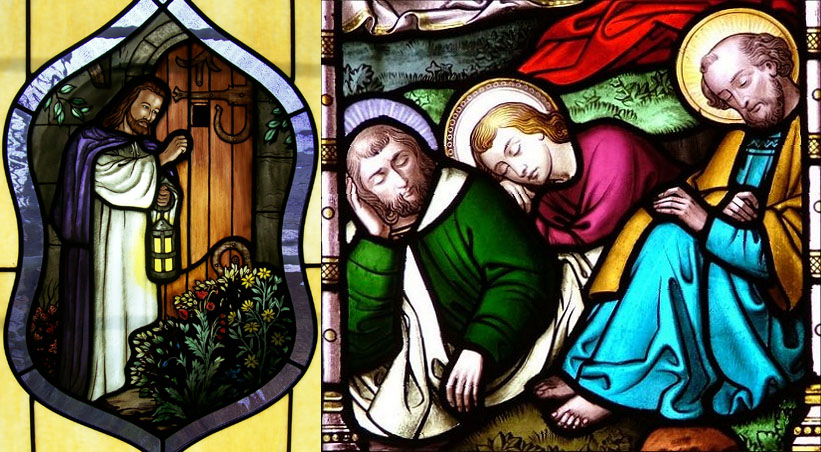Nineteenth Sunday of Ordinary Time: Waiting for what?
In his dramatic report of a 1996 ascent of Mount Everest, Into Thin Air, Jon Krakauer describes the risks, discomfort and expense that some people are willing to endure in order to reach their goal.
Aug 04, 2016

19th Sunday of Ordinary Time (Year C)
Readings: Wisdom 18:6-9;
Hebrews 11:1-2, 8-19
Gospel: Luke 12:32-48
In his dramatic report of a 1996 ascent of Mount Everest, Into Thin Air, Jon Krakauer describes the risks, discomfort and expense that some people are willing to endure in order to reach their goal, reaching “the rooftop of the world,” the mountain’s summit at 29,028 feet.
Viktor Frankl, in his account of what he learned about human nature in a Nazi concentration camp, Man’s Search for Meaning, notes that the people most likely to survive that ordeal were those who had something to look forward to — a loved one with whom they hoped one day to be reunited or an enterprise they hoped to accomplish.
What we look forward to is so deeply a part of our personality that this mental and spiritual reality impacts our bodily health and vitality. The lack of something to look forward to results in a deterioration of energy and performance, and in its extremity can lead to suicide. Recalling this helps us understand the importance of the elements of Christian faith that theology calls eschatology (“the last things”) — death, judgment, heaven, hell.
In some times and places, preaching and teaching was so preoccupied with the last things that religion thus practised was labelled by Marxists as “the opium of the people.” Their point: the more people focused on the afterlife (“pie in the sky by and by”), the less they were inclined to attend to the injustices of the way things are now. Political oppressors were all in favour of such otherworldly religion.
In response to such misplaced investment in the next life, the Church has rightly reminded itself (e.g. in Vatican II) of the importance of taking seriously the gifts and tasks of our earthly life, short though that sojourn may be. Now, many of us, having absorbed that lesson — the importance of our present daily lives — need to become reawakened to the forward-looking dimension of our faith. This Sunday’s readings can help us do just that.
The passage from the Book of Wisdom (Wis 18:6-9) features the Israelites beside the Red Sea, the pharaoh’s charioteers on the horizon, waiting confidently for the divine rescue to come. They knew their faith was not in vain because Yahweh’s ten signs and wonders had already facilitated their exodus out of slavery.
Chapter eleven of the Letter to the Hebrews (Second Reading) displays the famous “descendants as numerous as the stars in the sky and as countless as the sands on the seashore.” Abraham chief among them, showing how trust in God founded on past experience of God (in Abraham and Sarah’s case the experience of life drawn from sterility) enables the faithful to move into an unknown, and even improbable, future.
That future fact of judgment calls one right back to the realities and responsibilities of this life. The Gospel’s parables of the servants and the returning master encourage a balance regarding attention to future reward (or punishment) and to current responsibilities. The first story highlights the unpredictability of the future moment of judgment (“You also must be prepared, for at an hour you do not expect, the Son of Man will come”).
The second parable underscores the importance of right behaviour in the present; the servants are given responsibilities ( … “the faithful and prudent steward whom the master will put in charge of his servants to distribute (the) food allowance at the proper time”)
The steward who is found doing that upon the master’s return is rewarded. The one who abuses his authority by taking advantage of his situation is punished. The wisdom of these parables is caught in the Last Judgment scene that dominates the decor of medieval cathedrals. Attention to that image awakens the worshipper to a future reality; but that future fact of judgment calls one right back to the realities and responsibilities of this life — the deeds we do now that will be mercifully and justly evaluated in the future.-- By Fr Dennis Hamm, SJ







Total Comments:0